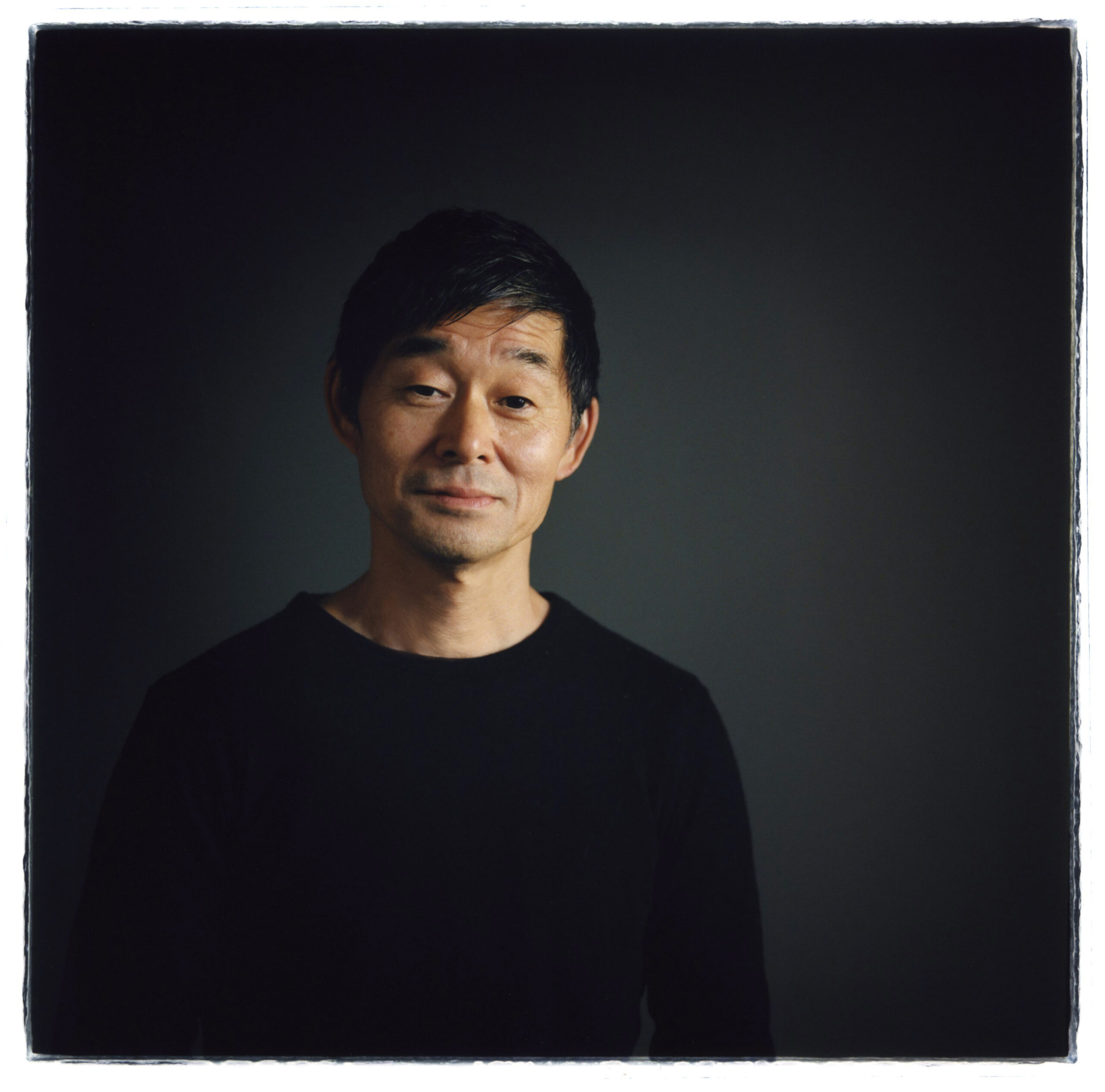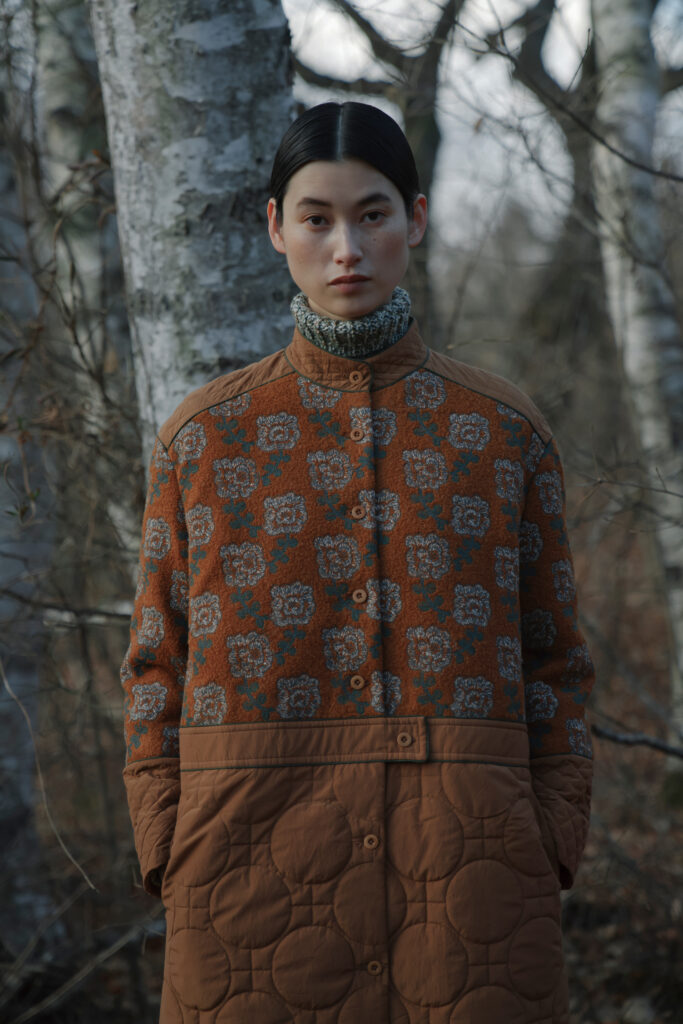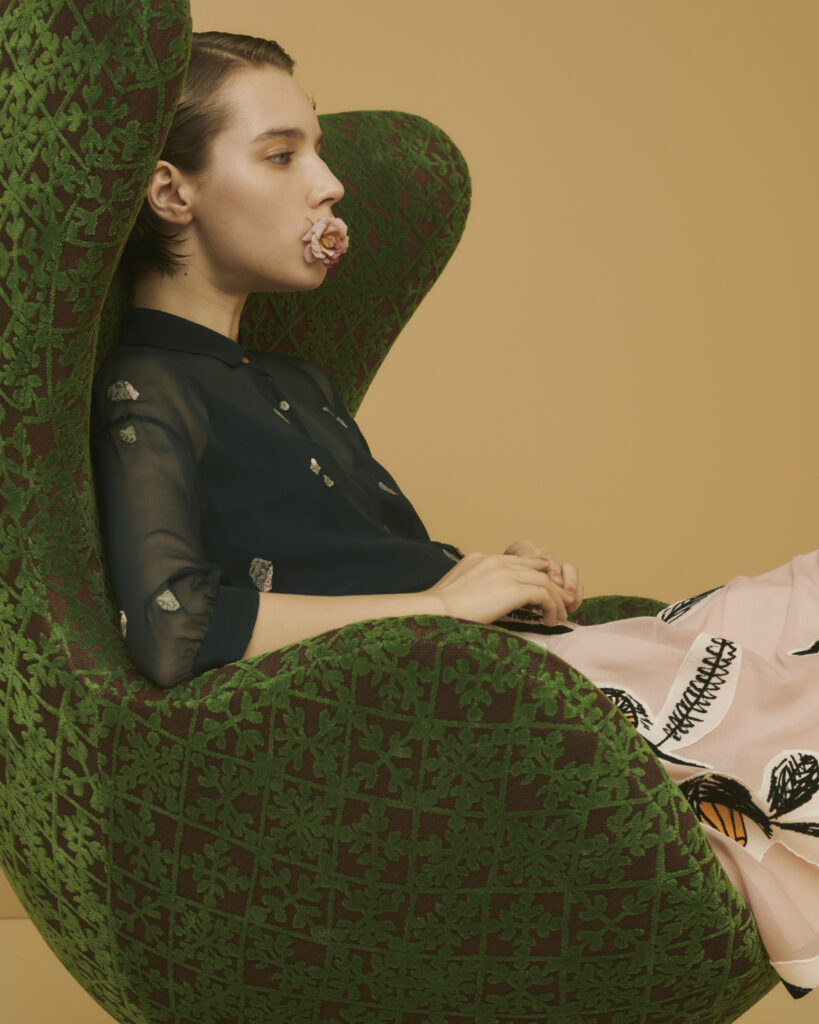
Many corporations take a stand against climate change on a superficial level, says Akira Minagawa
Weekly met Akira Minagawa, the internationally renowned Japanese fashion and textile designer and the founder of the minä perhonen design company. The intention was to discuss the installation planned for Helsinki Design Week’s main venue, but after the event was canceled, journalist Crystal Bennes and Minagawa ended up discussing design entrepreneurship and the appreciation of craftsmanship more broadly.
Weekly: Unfortunately, your exhibition for this year’s Helsinki Design Week had to be cancelled because of public health concerns, but I wonder if you could give a little bit of an idea as to what the installation would have been about.
AM: We were planning on preparing a display based on the theme of “understanding.” Today, consumption behaviour is determined according to things like the price, utility or beauty of things. But, with our display, we wanted to express a message that it is important to understand things from the point of view of, for example, what things are made of, what kinds of processes they go through, what kind of environment they are manufactured in and what kind of labour has produced them. We wanted to explain, through presenting particular garments, which materials were used to make it, where they came from, what kind of processes had to take place in order to make it, through what kind of labour? In this way, we can talk about not only what kind of social ideologies and philosophies underpin such garments, but also we can talk about what kind of joy garments can bring into daily life and how long we can expect them to fulfill these roles. We hoped to contemplate whether designs can define happiness in an omnidirectional sense, as in a bringing together of the creator, the user and society.

W: I know that you place very high value on craftsmanship and longevity in clothing, both as individual items, but also in terms of the entire industry that surrounds the production of these individual items of clothing. I find this especially interesting as longevity is not an idea frequently associated with fashion and clothing. Can you talk about how you came to value these ideas in an industry that doesn’t traditionally value them?
It’s a certainty that for the past few decades fashion has centred on the short term; short cycles of production supported by short-lived trends and consumption patterns. This is very convenient for brand marketing, but it is not a cycle which allows people to have a good relationship to design or use. I believe that we can build a long-term relationship with other types of objects in our lives, such as clothing, similar to the way we connect to architecture, art, and interior design. I can trace the origin of this idea back to when I first visited Finland at the age of nineteen and encountered the lives of Finnish people and their relationship with design.
Akira Minagawa
W: Do you think a “total design approach” makes it easier for you to be more ethical or ecological in business practices?
AM: In daily life, all designs exist by interconnection and interrelation. Rather than thinking about them in terms of categories or singular products, I believe it is more beneficial to begin doing so as landscapes of design. As for the environment, ideas for eliminating excess material are easily conceived if we repurpose the leftovers produced by the production of a particular product.

W: I’m curious as to your thoughts on possible synergies between Finnish and Japanese approaches to design?
AM: It is rather difficult to speak in terms of Finland and Japan, but if an infrastructure is created, in which creators, materials, craftsmanship, and manufacturing from all over the world could have a more flexible connection, and people’s wisdom became part of the public domain, that might contribute to the improvement of life on a global scale. It would be ideal if such a network could be constructed, in which ideas and manufacturing from all over the world were connected.
W: Would you do things differently if you were starting your company today rather than 25 years ago?
AM: Twenty-five years ago, the internet was not as sophisticated as it is now. If I were to set up my company today, where the global network has become much more diverse, I would begin making things based on ways to connect my atelier’s philosophy with creators from all around the world. Rather than contributing to the globalisation of design, I believe I could contribute to the potentiality of lively pairings on a local scale.
W: What do you think about business and climate impact? What can businesses do in relation to combating climate change?
AM: I often feel as though many corporations take a stand against climate change on a superficial level. When it comes to the conception of sustainability, businesses often exploit the language of sustainability in order to affirm their existing practices or to find ways to commercialise it. Amongst profit-oriented corporations, only unessential and superficial actions are taken. Corporations should not only produce goods, but they should also create circulatory infrastructures. For example, if corporations insist that a material is recyclable and biodegradable, but then burn it, the fact that the material is recyclable is pointless. We have not been able to deal sufficiently with this problem, either. In reality, it is not rational to have individual corporations deal with these issues: they should be dealt with on an industrial, regional, and national scale. We should have appropriate legal systems put into place.
W: Could you perhaps reflect on the HDW theme of “What is wise to design now”?
AM: I have said this before, but I believe wise design is about a relationship between the creator, the user and happiness. Wise design is when a creator discovers happiness through the creation of things, as well as when the end user discovers happiness through the use of things. Based on this foundation, environmentally friendly materials should adequately be produced through adequate processes. The designs produced here will perpetuate in the world and give happiness to people for a longer time.